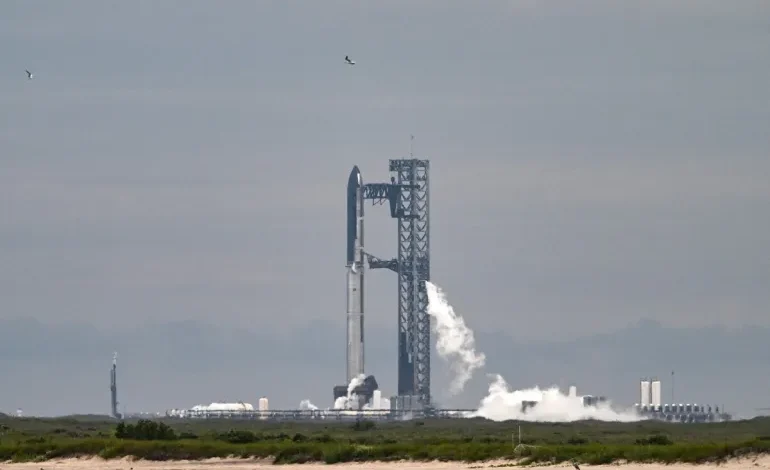Elon Musk’s SpaceX called off a planned test flight of its massive Starship rocket on Sunday, delaying the program’s next big milestone after a ground systems problem forced engineers to halt the countdown.
Roughly 30 minutes before liftoff, the company announced it would abandon the launch to “allow time to troubleshoot an issue with ground systems.” A new attempt is scheduled for Monday at the Boca Chica facility in Texas.
The scrubbed flight is the latest in a series of high-profile test failures. Earlier missions in January, March, and May ended in mid-flight explosions, while a June “static fire” test ended with the vehicle detonating on the pad.
Starship, standing at 403 feet (123 meters), is designed to be fully reusable. But so far, SpaceX has not managed to send its upper stage to orbit, deliver a payload, or return it safely.
The rocket is central to Musk’s long-term vision of colonising Mars. NASA also plans to use a modified version for its Artemis Moon missions, making the success of the system crucial for both commercial and government spaceflight.
If Sunday’s launch had gone ahead, the Super Heavy booster would have attempted a soft splashdown in the Gulf of Mexico, testing a backup engine configuration. Meanwhile, Starship’s upper stage would have fired its engines on a suborbital flight, deployed mock Starlink satellites, and attempted an engine reignition before returning toward Earth.
Even if the 10th test flight succeeds, SpaceX faces enormous technical challenges — from rapid reusability at low cost to in-orbit refueling of super-cooled propellant. Both are essential if Starship is to meet its promise of enabling long-term human exploration of the Moon and Mars.










The latest news in your social feeds
Subscribe to our social media platforms to stay tuned